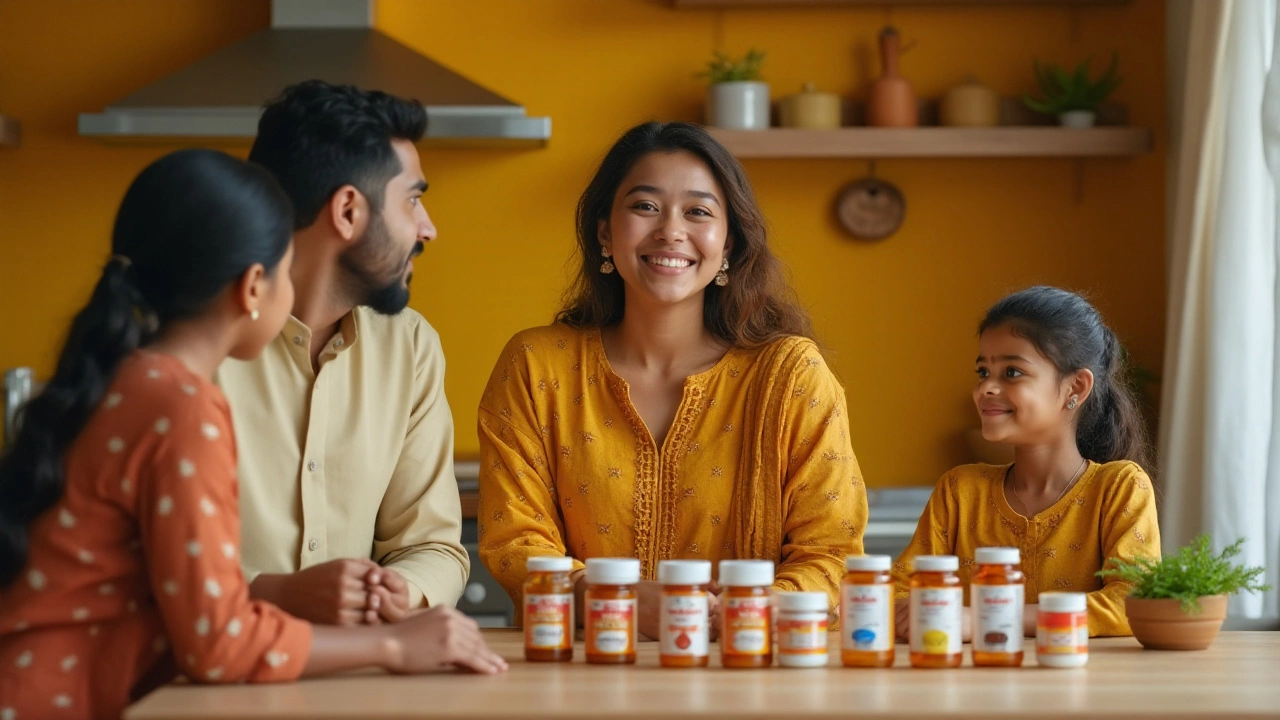Supplements Guide: Safety, Risks & Trusted Choices in India
If you’re hunting for a boost—more energy, stronger immunity, or better skin—you’ve probably hit the supplement aisle. With so many pills, powders and teas, it’s easy to feel overwhelmed. The real question is simple: are they safe, and will they actually do what they promise?
India’s supplement market is booming, but regulation can lag behind. That means not every product on the shelf has been rigorously tested for hidden toxins or harmful fillers. Below we break down the biggest red flags and show you how to pick products that match the science.
What to Watch Out for When Taking Supplements
First, look at the label. If it’s missing a clear ingredient list, or if it uses vague phrases like “proprietary blend,” that’s a warning sign. Those blends often hide the exact amount of each component, making it hard to gauge safety.
Second, check for heavy metals. Some herbal powders, especially those sourced from poorly monitored farms, can contain lead, mercury or arsenic. Bad news for your kidneys and brain. Reputable labs in India now offer third‑party testing—look for certificates from agencies like ABSI or ISO.
Third, be aware of interactions. Supplements aren’t isolated pills; they mix with any medicines you’re already taking. For example, St. John’s Wort can lower the effectiveness of blood thinners, while high‑dose vitamin K can clash with anticoagulants. Always ask your doctor before adding a new product.
Lastly, watch out for “mega‑doses.” More isn’t always better. Fat‑soluble vitamins (A, D, E, K) can accumulate in the body and become toxic if you exceed recommended amounts. Stick to the daily values unless a qualified health professional tells you otherwise.
How to Choose Safe and Effective Supplements
Start with trusted brands. Companies that publish batch‑specific test results, list all ingredients with exact amounts, and have a clear manufacturing address are usually playing by the rules. Look for the “US Pharmacopeia” (USP) or “GMP” marks on the packaging.
Second, rely on evidence. A supplement backed by clinical studies—especially those conducted in India or with Indian participants—carries more weight than a vague claim of “boosts immunity.” PubMed and the Clinical Trials Registry can help you verify the research.
Third, consider the source of the raw material. Organic, sustainably farmed herbs tend to have fewer pesticide residues. When a brand mentions the origin of its plant—like “sourced from Karnataka farms”—that transparency is a good sign.
Finally, think about your own health needs. If you’re looking for a specific benefit, such as joint support, focus on ingredients that have proven effects, like glucosamine, turmeric curcumin (with piperine for absorption), or Boswellia. Pair that with a balanced diet, and you’ll avoid relying on a pill for everything.
Bottom line: supplements can be a helpful addition, but they’re not risk‑free. By checking labels, confirming third‑party testing, and matching products to real evidence, you protect yourself from hidden toxins and make sure every dose counts. Stay curious, stay safe, and let your health choices be driven by facts, not hype.

Which Vitamins You Should Avoid Taking Together
Understanding which vitamins shouldn't be taken together is crucial for maximizing their benefits and avoiding potential adverse effects. Certain combinations can reduce absorption, cause side effects, or even be harmful. This article explores which vitamins to avoid mixing, providing practical advice for optimizing your supplement regimen. Discover common myths and tips to ensure you're getting the most out of your vitamin intake.

Best Natural Herb for Your Health: A Deep Dive
Feb, 26 2025



